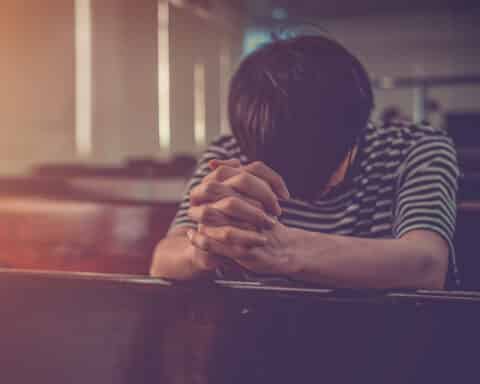Question: Why does the Church teach that if a Catholic goes to confession and makes a good confession, the sins are wiped away, but we’re still going to be judged for all our sins that we committed on Judgement Day? Am I missing something? In other words, is it taught that as long as you go to confession, then you don’t need to change your behavior through true repentance? It seems like the Church downplays repentance for the sake of regular confession.
— Michele Mora, via email
Answer: The Last (or General) Judgment Day is not a second judgment. Our personal judgment is when, after death, we appear before the judgment seat of Christ (cf. 2 Cor 5:10, Rom 14:10) and are judged according to our deeds (cf. Rom 2:5-6). The General Judgment is a gathering of all the nations at the end of time wherein nations, movements, philosophies and so forth will all be judged. Further the personal judgment already made of individuals will be manifest to all.
But your question remains, not in terms of the Last Judgment, but in terms of the personal judgment after we die. Why are we judged for deeds if we have repented? The fact is that we will not be judged for sins we have repented and confessed. Far from downplaying the need for repentance, the Church requires it along with a firm purpose of amendment for the confession to be valid. It is only for unrepented mortal sins that we will be condemned.
However, it is necessary to establish a basic understanding of what the Sacrament of Confession does and what it does not do. When one goes to confession, one is forgiven for the sins they have committed, and eternal punishments are not assigned to us. However, forgiveness does not remove all the temporal punishments or consequences due to sin. Consider an example. Suppose a certain man drank too much, and then drove, and due to his impaired condition, he had a serious accident that killed another person. He may well go to confession and receive absolution, as he should. However, his sorrow and God’s forgiveness does not make the accident “un-happen” or the deceased person come back to life. Further, the man may suffer deep sorrow and guilt for the rest of his life because of what he did. So, the Sacrament of Confession brings the Lord’s forgiveness such that the eternal penalty of hell is avoided, but it does not remit all the consequences of the sin or remit all punishment due to sin. Consider, too, that a child who does something seriously wrong may apologize to his parents and even go to confession. But that does not mean that all punishments due to sin must be canceled. A parent may still deem it necessary to carry out a punishment due to the sin for the child’s long-term good, or for justice to be restored regarding the person who was harmed by the child.
In both cases described here, there may also be deeper moral or psychological issues that cannot be ignored and must be faced. Sin causes harm to both the sinner and the victim and damages must be repaired. This is also the reason for purgatory, wherein the wounds and sorrows of sin are healed and perfection is attained.





